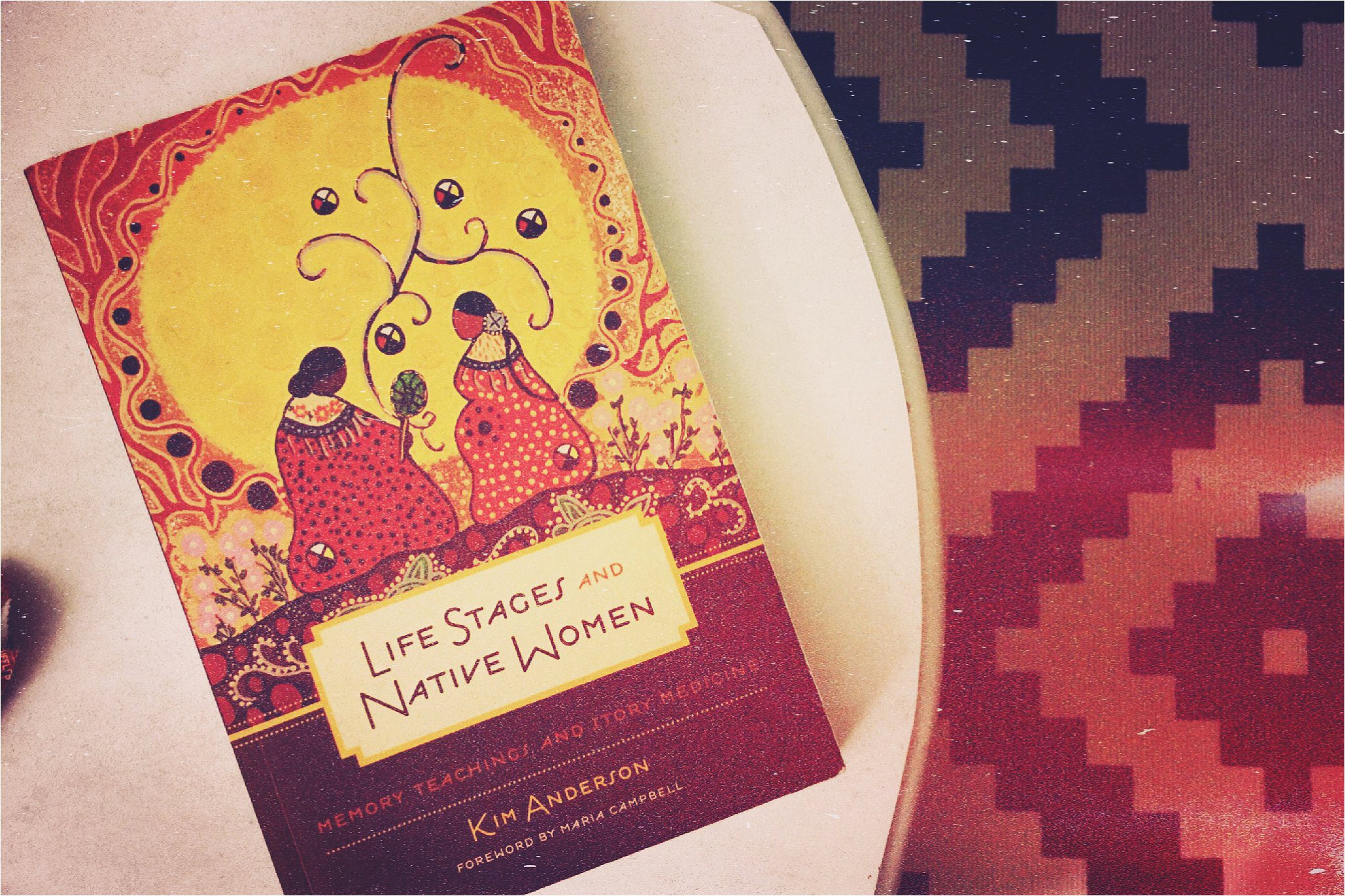
From the publisher: “In Life Stages and Native Women, Kim Anderson shares the teachings of fourteen elders from the Canadian prairies and Ontario to illustrate how different life stages were experienced by Métis, Cree, and Anishinaabe girls and women during the mid-twentieth century. These elders relate stories about their own lives, the experiences of girls and women of their childhood communities, and customs related to pregnancy, birth, post-natal care, infant and child care, puberty rites, gender and age-specific work roles, the distinct roles of post-menopausal women, and women’s roles in managing death.”
Personal:
I quite enjoyed this book. I enjoyed the process of speaking/reading the stories of thirteen different women and weaving the connection together in a format that was both easy to read and easy to relate to. The process of sharing the ‘traditional’ roles and how that can affect or effect our roles today is interesting – we also have to come into understanding that one woman’s role in her community does not define us all, and while this book may be hard to relate to for someone who wants to go beyond my ‘duties’ (staying home, taking acre of hearth, etc), I do appreciate seeing how determination, kinship and community play a role in creating a close-knit family and culture.
Quotables:
- “The book was about decolonization through “reconstructing Native womanhood,” a process which involves identity formation at the individual level as well as collective thinking about restructuring social relations in or contemporary societies” (5)
- “Among Indigenous cultures, part of learning the value of independence and autonomy meant that children were not only disciplined but also had to learn self-discipline. The ability to be self-disciplined was important because it fed into the survival of both individual and community” (68)
- “One of the most important teachings shared between grandparents and their grandchildren was the principle of reciprocity in relationships” (73)
- “Relationship building was thus vital to the well-being of the collective, and as the keepers of relationships, women held important roles” (112)
- “Culture comes from all of those things – from the way that people live together, the way that people treat each other, the way they interact with one another. That’s kinship” (112)
- “We live with the legacy of our colonial history today, and many of our families and communities continue to be in a state of crisis. In spite of it all, we have avenues of hope and vision; avenues which are cultured and advanced through the oral histories of our elders” (161)
buy the book: Life Stage and Native Women


